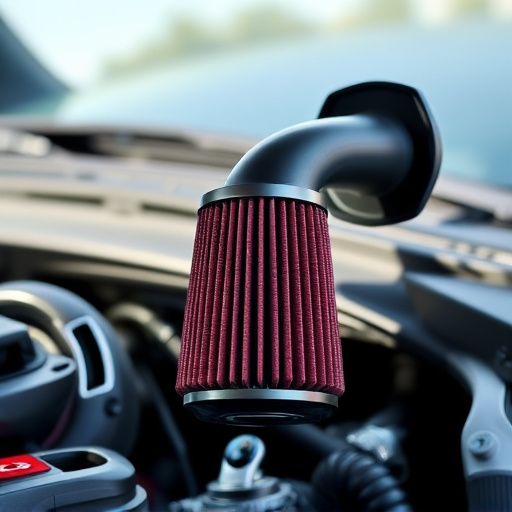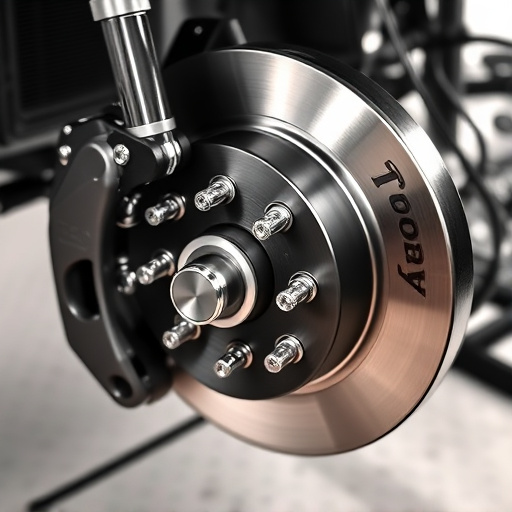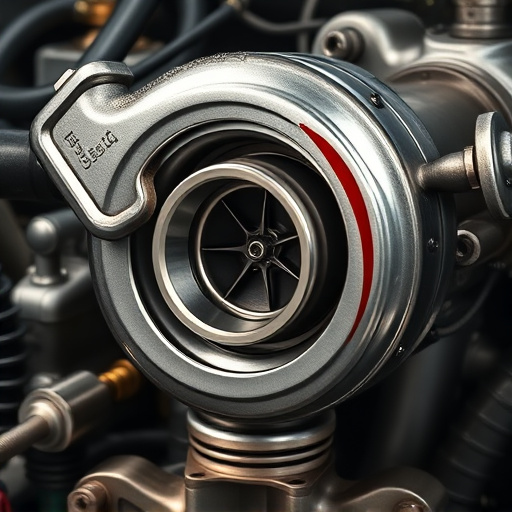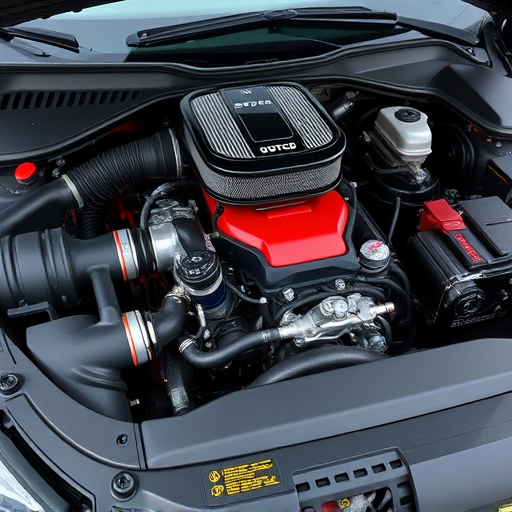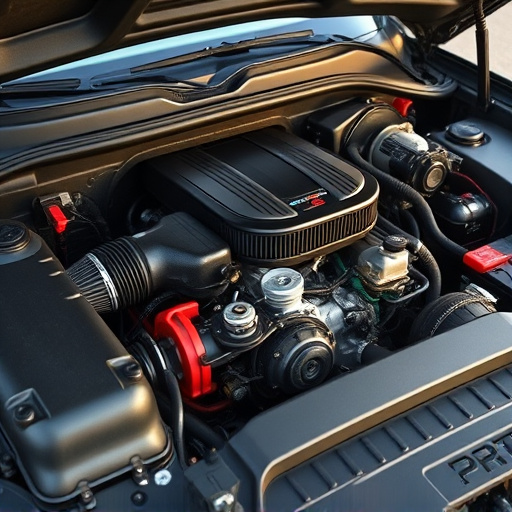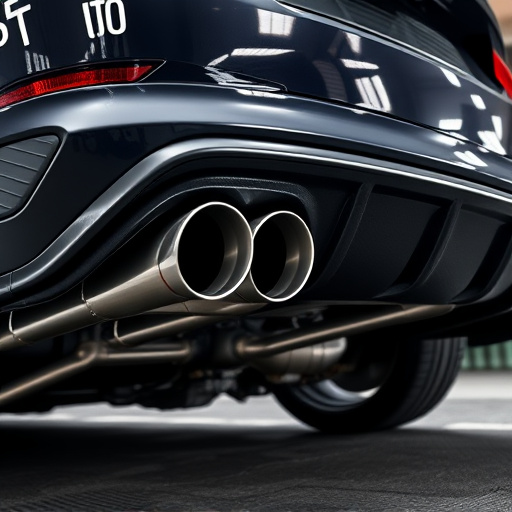The vehicle suspension system is a complex interplay of springs, shock absorbers, and allied parts, crucial for stability, comfort, and control. Tuning spring and damper stiffness enhances handling dynamics. Non-suspension upgrades, like engine modifications or tires, indirectly impact suspension performance. Optimal tuning balances ride comfort with cornering precision and high-speed stability through precise setup, strategic upgrades, and advanced components, transforming the driving experience.
Vehicle suspension systems are a critical component of any car’s performance, determining how it handles various road conditions. This article delves into the intricacies of tuning these systems for enhanced handling. We’ll start by exploring the fundamental basics of vehicle suspension, then uncover key factors influencing optimal tuning. Next, we’ll present techniques to fine-tune your vehicle’s suspension for maximum control and stability, ensuring a smoother, more responsive ride.
- Understanding Vehicle Suspension System Basics
- Factors Affecting Suspension Tuning
- Techniques for Optimizing Handling Performance
Understanding Vehicle Suspension System Basics
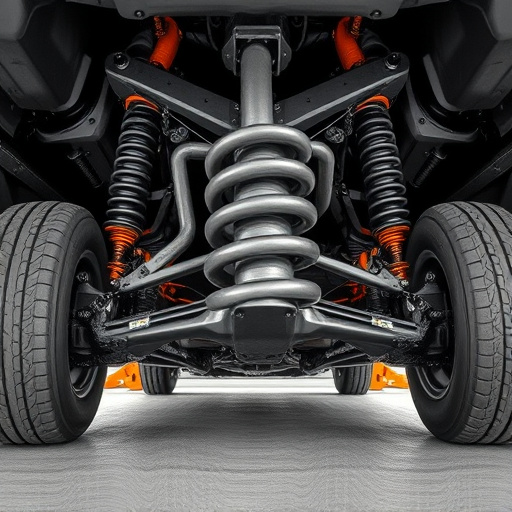
The vehicle suspension system is a complex network of components designed to ensure optimal stability, comfort, and control while driving. At its core, it consists of springs, shock absorbers (or dampers), control arms, ball joints, and other parts that work in harmony to absorb impacts from road irregularities and maintain vehicle posture through turns. Understanding these basic elements is crucial for tuning the suspension to achieve better handling dynamics.
For instance, adjusting the stiffness of the springs and dampers can significantly impact how a vehicle responds to both normal driving conditions and extreme maneuvers. Upgrading components like brake rotors, air filter kits, or cat-back exhaust systems might also indirectly influence suspension performance by affecting overall vehicle weight distribution and aerodynamic drag. Such modifications open up a world of possibilities for fine-tuning the vehicle’s handling characteristics, ensuring a smoother ride while enhancing cornering precision.
Factors Affecting Suspension Tuning
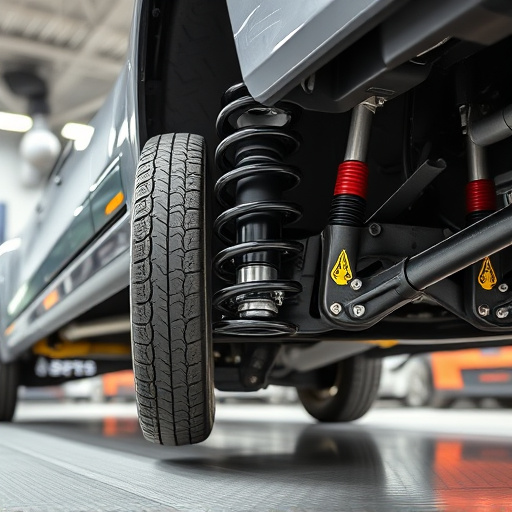
The tuning of a vehicle’s suspension system is a delicate art that involves numerous factors affecting its overall handling and driving dynamics. One of the primary considerations is the balance between comfort and agility; a well-tuned suspension strikes a perfect harmony, ensuring a smooth ride while allowing for responsive cornering and stable high-speed cruising. The design and setup of shock absorbers and springs play a pivotal role in this balance, as they control the vehicle’s movement and dampen unwanted vibrations.
Additionally, the impact of wheel alignment and tire specifications cannot be overlooked. Proper alignment ensures that the tires make consistent contact with the road surface, maximizing grip during cornering and braking. The choice of cold air intakes or performance exhausts, while not direct suspension tuning aspects, can indirectly influence vehicle performance and handling by affecting engine output and weight distribution, subsequently impacting the overall suspension response and driver control.
Techniques for Optimizing Handling Performance
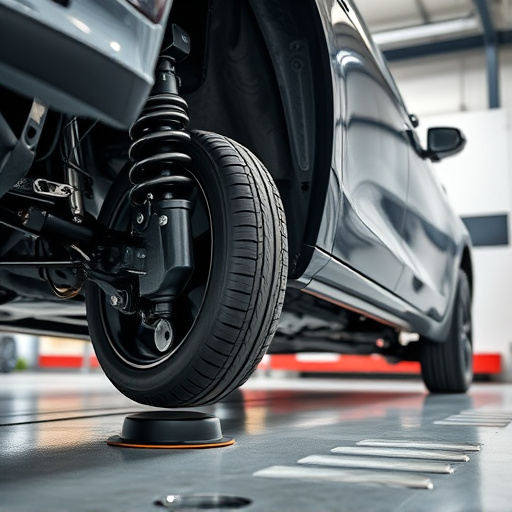
Optimizing handling performance involves a nuanced approach to fine-tuning your vehicle’s suspension system. Techniques include adjusting spring rates and damping settings to enhance cornering capabilities and stability at high speeds. Upgrading to performance air filters can improve airflow, resulting in better engine response and overall performance. For those seeking more significant changes, installing suspension kits tailored to your vehicle’s make and model offers precise control over ride height, camber, and toe angles, further refining handling dynamics.
Additionally, considering the role of performance brakes is essential for achieving optimal handling. High-performance braking systems reduce stopping distances and enable better control during hard cornering. By integrating these various components—from suspension kits to advanced air filters and upgraded brakes—enthusiasts can transform their driving experience, achieving a balance between comfort and agile, responsive handling on the road or track.
Tuning a vehicle’s suspension system is an art that can significantly enhance handling and driving pleasure. By understanding the basics, considering various factors, and employing effective optimization techniques, car enthusiasts can transform their rides into true joyrides. This tailored approach ensures drivers navigate turns with precision, improve overall control, and experience a smoother, more engaging drive—all without compromising safety. With the right adjustments, your vehicle’s suspension system becomes a symphony of agility and stability, catering to both everyday driving and thrilling moments on the road.









